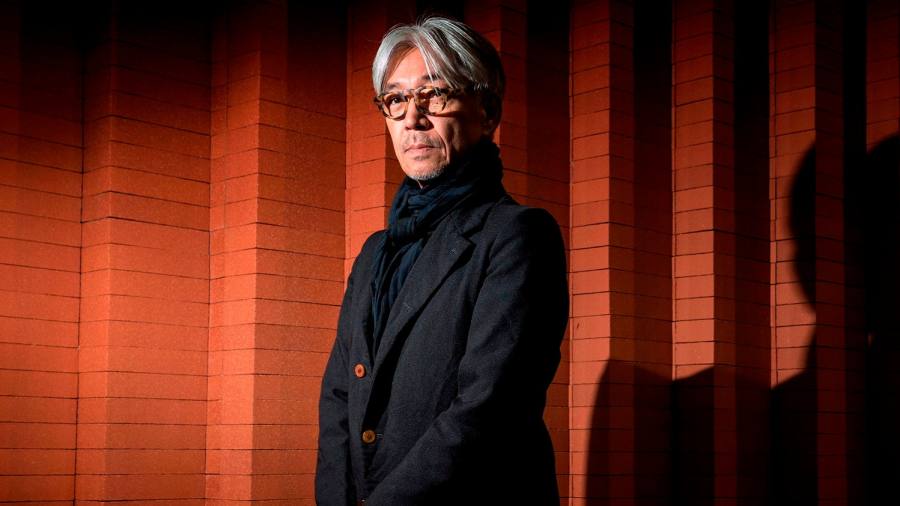Just times in advance of his loss of life on March 28 at the age of 71, Ryuichi Sakamoto utilized his closing reserves of strength to fire off a letter to the governor of Tokyo.
Japan’s most crucial postwar composer, a pioneer of electronic new music and an exemplar of his nation’s innovative prowess demanded a halt to the prepared felling of hundreds of trees. It was the last stand of a man who experienced for a long time — in lifetime, new music and collaboration — defied conformity.
The threatened Jingu park sits beside the new Countrywide Stadium — the location for the delayed and scandalised Tokyo 2020 Olympics, for which Sakamoto pointedly refused to produce the anthem. It was an act of calculated ferocity against a place where by he believed that the younger should be much more feisty. In 1992, he experienced cheerfully penned the equivalent anthem for the summer game titles in Barcelona. “True creativity”, he declared for the duration of a 2020 Lunch with the FT below Covid-19 lockdown and in failing health, “is harmful.”
This snubbing of orthodoxy was a thread stitched throughout the extraordinary diversity of Sakamoto’s works: a portfolio of achievement ranging across dance flooring smashes with the Yellow Magic Orchestra (YMO), hip hop compositions, experimental collaborations with David Sylvian and Iggy Pop, the scores for movies which include The Last Emperor and an performing position reverse David Bowie in the 1983 movie Merry Xmas, Mr Lawrence.
But for all his unconventional style and strategy, Sakamoto’s embrace by the mainstream was heat. His trophy cupboard heaved with awards, such as an Oscar, Grammy, Bafta and Golden Globes.

Born in Tokyo, Sakamoto’s father edited textbooks by Yukio Mishima and other literary giants: the property, he recalled, bustled with resourceful outsiders. His mom, a hat designer, was the main route by way of which Sakamoto encountered classical tunes and was launched to the piano. He went to a progressive university when attended by Yoko Ono and was creating new music by the age of 10.
But this was also a youth uncovered to the 1960s: as musical influences like the Beatles and other western bands crammed Japan’s airwaves, his mother would get him to the concerts of trailblazers these kinds of as John Cage. On the streets were being mass pupil actions: a crackle of insurrection to which he was drawn.
Sakamoto’s own audio grew from regular foundations: in the 1970s, he graduated from what is now the Tokyo College of the Arts with a masters degree in composition. But he found a lot of of the courses stifling, alternatively feeding his growing obsession with synthesisers and digital new music. The perception of these early academic leanings, while, trapped speedy. His bandmates in YMO — a team Sakamoto joined in 1978 — nicknamed him “the professor”.
With YMO — a strike-generating machine which, among the lots of other people, gave the earth “Rydeen” and “Behind the Mask” — he liked superstardom. Couple bands in Japan have been as huge at the time and none so globally influential.

YMO was incredibly a great deal of its time: new music itself, by means of the recently evolving instruments of Korg, Roland and Yamaha, was shifting. In the course of the late 1970s and early 1980s, Japan’s global profile grew exponentially. Its economic climate and engineering electric power appeared ready to choose on the entire world YMO and Sakamoto had been among the exports that made Japan interesting. Tokyo, he informed the FT with the twinkle of a single who experienced relished the city and the epoch intensely, was at the time the world’s most intriguing city.
Sakamoto’s profession was a single of frequent output and endlessly fruitful partnerships. His film and Tv set scores spanned many years, darting inventively from tough artwork house erotica to epics such as The Revenant and The Sheltering Sky.
Sakamoto’s work rate, even for the duration of his late sick health, was described by mates as almost unbroken. The fantastic exception was the period of time after the terrorist assaults on New York in 2001 — an episode he uncovered so unsettling that he was not able to hear to any songs for quite a few months.
An ardent opponent of nuclear electrical power, and a forthright campaigner, Sakamoto’s ultimate protest in excess of the Tokyo trees came with regret. The fashionable period, he reported, was the appropriate time for the Japanese to specific anger, but as 1 who never ever stopped paying out dues to rebellion, he doubted they would ever stand up to authority.
Sakamoto was married three times, and has four kids, one of them the popular singer Miu Sakamoto.





More Stories
Remembering Roots Musician Steve James 1950–2023
Mark Stewart, Pop Group frontman and revered countercultural musician, dies aged 62 | Music
Musician Hunter Hayes on the cost of fame and anxiety: ‘I’m my hardest critic’